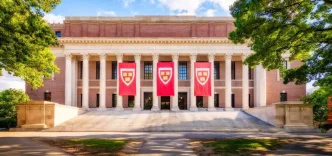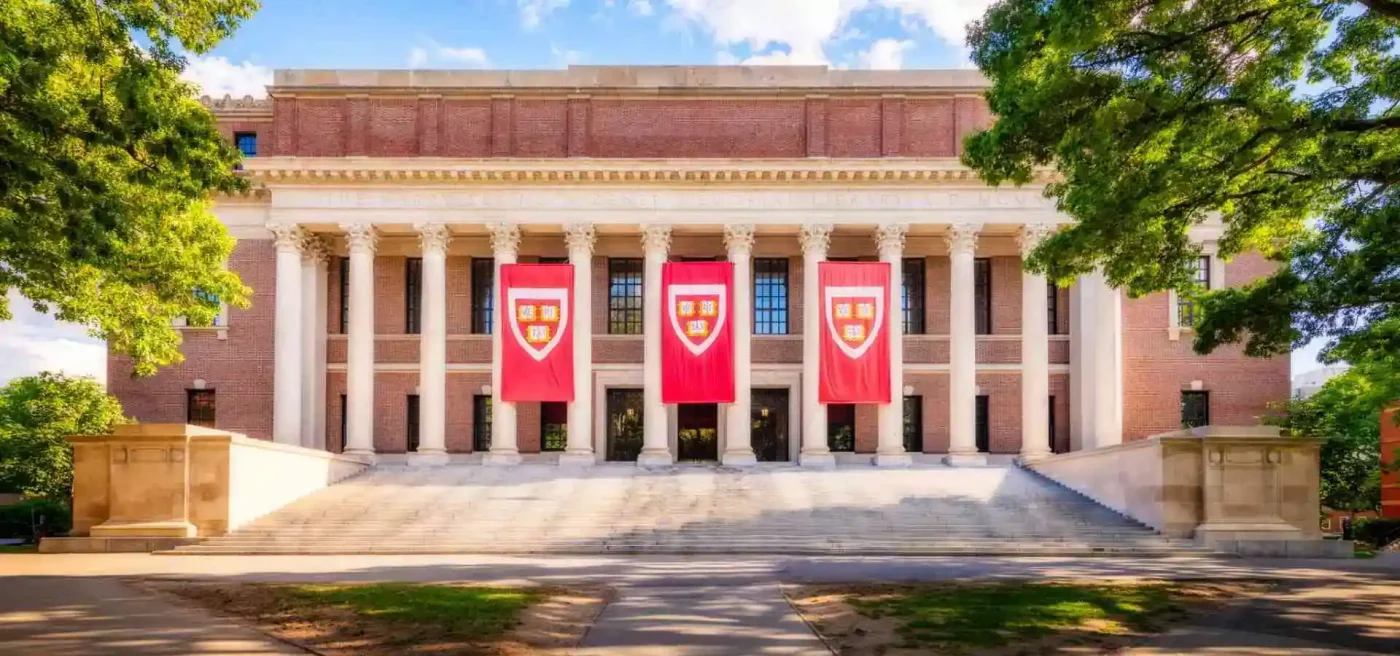Singaporean students accepted to Harvard University are grappling with unprecedented uncertainty as US President Donald Trump’s immigration policies continue to disrupt plans for international education. Despite a series of legal challenges temporarily halting some of the administration’s directives, many prospective students from the Republic remain in limbo, with visa appointments delayed or canceled and the fall semester looming in late August.
A Community Seeks Clarity
At a pre-departure meeting organized by the Harvard Club of Singapore on June 14, more than 10 matriculating undergraduates and postgraduates gathered to navigate the uncertainty. Held at Monk’s Brew Club in Katong, the event—titled “Navigating Your Next Steps Amid Uncertainty”—departed from its typically celebratory tone. This year, it focused on providing comfort and practical advice to anxious attendees. Immigration lawyers were on hand to address concerns over student visas and legal documentation, while current Harvard students and alumni offered guidance.
Ms. Welly Tantono, president of the Harvard Club of Singapore, told local media that none of the prospective students have relinquished their offers despite the challenges. “The hope was the event would offer comfort” she said, emphasizing the club’s efforts to support students during this turbulent period. However, a board member, who spoke on condition of anonymity, revealed that about half of the attendees are still awaiting their visas. Existing appointments at the US Embassy in Singapore have been canceled for some, and securing new slots has proven difficult.
US Policy Shifts and Legal Battles
The root of the uncertainty lies in a series of directives from the Trump administration aimed at reshaping American higher education. In April, the administration froze nearly US$3 billion of Harvard’s federal research funding, a significant blow to the institution. This was followed by a decision in May to terminate Harvard’s right to host and enroll foreign students and scholars—a move later paused by a US district judge. On June 4, President Trump issued a directive barring foreign nationals seeking to study in the US from entering the country, which was also temporarily blocked by the same judge on June 5. The initial hold from May was extended for two weeks, with the June block similarly set to last for a fortnight.
These policies have sparked widespread concern, particularly at Harvard, where international students comprise roughly a third of the student body—around 6,800 individuals. Trump has publicly criticized private universities like Harvard, accusing them of tolerating campus anti-Semitism and promoting what he calls “radical left” and anti-American ideologies. While these claims remain contentious and lack broad substantiation, the administration’s actions have had tangible effects on students worldwide, including those from Singapore.
Singapore’s Diplomatic Efforts
Recognizing the gravity of the situation, the Singaporean government has taken steps to seek clarity. On June 7, Foreign Minister Vivian Balakrishnan announced that the Republic’s embassy in Washington, DC, has been engaging with the US State Department and the Department of Homeland Security to understand potential delays in visa processing for Singaporean students. He also noted that contingency plans are being explored to address a worst-case scenario in which students may not be able to travel to Boston for the start of the academic year.
Harvard University itself has been proactive in maintaining communication with its international cohort. Ms. Tantono highlighted that the university has kept students updated, addressing their numerous concerns through regular outreach. Additionally, the Harvard International Office has been a point of contact for many, offering guidance on navigating the evolving immigration landscape.
Broader Implications for International Education
The challenges faced by Singaporean students are emblematic of a larger crisis in international education under the current US administration’s policies. Harvard is not the only institution affected; universities across the United States are grappling with the fallout of tightened immigration rules and funding cuts. For countries like Singapore, which places a high value on global education and sends a significant number of students to elite US institutions, the stakes are particularly high. The potential inability to pursue studies at Harvard—a symbol of academic excellence—could have long-term implications for students’ career trajectories and for bilateral educational ties between the US and Singapore.
Education experts suggest that if these restrictions persist, they may deter future generations of international students from considering the US as a primary destination for higher education. Alternative hubs such as the United Kingdom, Canada, and Australia could see an influx of applicants, potentially shifting the global academic landscape. While legal challenges have provided temporary relief, the uncertainty surrounding the duration and scope of these blocks adds another layer of complexity. If the temporary judicial holds are not extended or if new restrictive policies emerge, students may face even greater hurdles as the academic year approaches.
Personal Stories Amid Policy Chaos
Beyond the policy debates and legal battles, the human dimension of this issue is impossible to ignore. For many Singaporean students, admission to Harvard represents the culmination of years of hard work and sacrifice. The prospect of having those plans derailed by geopolitical and administrative decisions beyond their control is deeply unsettling. At the Harvard Club event, attendees shared their anxieties about the future, seeking reassurance from peers who have navigated similar challenges.
One student, who preferred to remain anonymous, described the process as “incredibly stressful,” noting that the uncertainty over visa approvals has made planning for the fall semester nearly impossible. Others expressed frustration over canceled embassy appointments, with some unsure if they will secure a slot before the semester begins. Despite these challenges, there is a sense of resilience among the group, buoyed by the support of the Harvard Club and the university’s ongoing efforts to assist international students.
Looking Ahead: A Fragile Optimism
As the fall semester at Harvard approaches, with first-year students expected to arrive in late August for placement tests and campus orientation, the clock is ticking for Singaporean students and their families. The temporary judicial blocks offer a glimmer of hope, but the broader trajectory of US immigration policy remains uncertain. Legal experts warn that even if current restrictions are lifted, the precedent set by these policies could embolden future administrations to impose similar measures, creating a chilling effect on international education.
For now, the Singaporean government, Harvard University, and community organizations like the Harvard Club are working to mitigate the impact on students. Yet, as these young scholars prepare to embark on a transformative chapter of their lives, they find themselves at the mercy of forces far beyond their control. Whether they will step onto the iconic campus in Boston come August remains an open question, one that encapsulates the broader tensions between national policy and global aspirations.
















